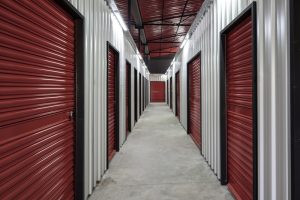
The world of industrial services is vast and diverse, touching almost every aspect of our lives. Amongst these, metal fabrication is significant, used in multiple automotive, aerospace, and construction industries. But what makes this process so indispensable? From providing high precision at reduced costs to ensuring efficacy, there is a gamut of reasons why metal fabrication is a key player in industrial services. Let’s delve deeper.
Understanding the Process of Metal Fabrication
Metal fabrication refers to the process of creating metal parts, machinery, or components by cutting, bending, and assembling procedures. The process is a core component of industrial services, connecting various sectors with broad applications, such as building automobiles, airplanes, and kitchen cutlery. Such tasks require professional expertise and high-tech equipment to ensure precision and minimize waste.
The Role of Welding in Metal Fabrication
Think of welding as the glue that holds the whole metal fabrication process together. It is the process of joining two separate metal parts securely. There are two primary types: Robotic Welding and Manual Welding. While the former offers perfection and increased productivity, the latter provides flexibility in complex tasks.
The Impact of Technology on Metal Fabrication
As in most industries, technology plays an instrumental role in metal fabrication. The advent of automation has brought about significant improvements in efficiency and product quality. Robotic welding, for instance, can produce more with less effort, leading to increased productivity. An example of this impact is using electronic weld process controllers, an innovation that ensures consistent quality of welds.
The Economics of Metal Fabrication
One of the notable benefits of metal fabrication is the potential for reduced production costs, achieved through efficiency and waste minimization. The emphasis here is on maximizing the return on investment. For instance, robotic welding can be viewed as an upfront investment that eventually results in long-term revenue by improving productivity and minimizing waste. Such instances make a compelling case for robotics in this field.
Safety in Metal Fabrication
Safety is crucial to any industrial process, and metal fabrication is no exception. With the help of robots, the process becomes less hazardous as they are equipped with safety measures ensuring predictable behavior in the presence of human operators.
Flexibility and Efficiency in Metal Fabrication
Despite the many advantages that robotic welding offers, manual welding is not without its benefits. The primary advantage is flexibility, as skilled welders can handle a wider range of tasks without intricate programming or specialized equipment.
Undeniably, efficiency is also crucial in this industry. For instance, with metal cutting, precision is paramount. Using lasers in metal laser cutting can ensure high speed and quality results, making this technology integral to the process.
Another critical component in this process is a steel fabrication company in Philadelphia. Such companies are notable for their expertise in metal fabrication, and their role in the process can’t be overlooked due to the quality and efficiency they bring to the table.
Detecting and Managing Manufacturing Issues
Despite the numerous advantages of automated welding, it’s not foolproof. When issues arise, detection can be delayed since robots will continue the procedure until a piece of equipment stops working. This is where skilled welders prove their worth, as they can spot issues on the manufacturing floor and take the necessary actions.
Error Rates and Quality in Welding
Ultimately, it boils down to minimizing errors and maximizing quality. Robotic welding demonstrates error rates significantly lower than manual welding, but both forms have their place in industrial services, given the right circumstances.
Conclusion
All in all, metal fabrication forms the backbone of many industries, playing an inherent role in industrial services. This comprehensive look into the metal fabrication process emphasizes its importance and affirms “What Makes Metal Fabrication Essential in Industrial Services?”. Integrating technology, optimizing safety protocols, and enhancing efficiency is evidently indispensable in our modern industrial phase.








